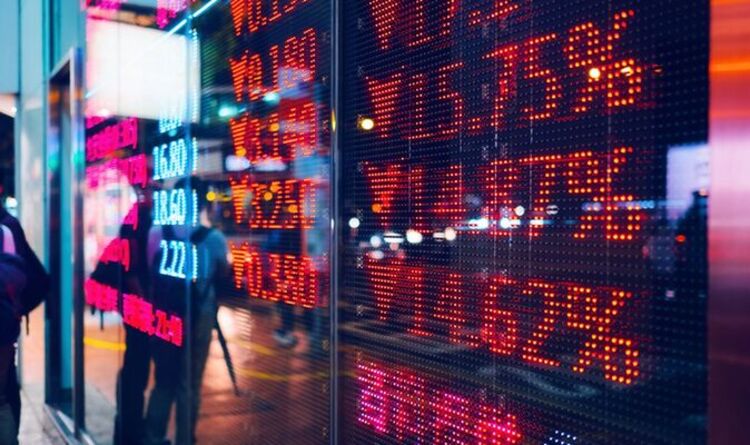China and Russia could trigger ‘devastating’ global depression as ‘greatest bubble’ bursts
GMB: Martin Lewis warns of potential ‘world-wide recession’
We use your sign-up to provide content in ways you’ve consented to and to improve our understanding of you. This may include adverts from us and 3rd parties based on our understanding. You can unsubscribe at any time. More info
“We’ve had the greatest bubble in history and it’s been extended since the 2008/9 recession by just massive stimulus” warns economist and forecaster Harry Dent. Mr Dent has a long history of predicting market crashes having previously called Japan’s 1989 recession and the bursting of the dot-com bubble in the early 2000s. According to Mr Dent the conflict in Ukraine is now “the type of trigger that central banks can’t control”. While he doesn’t believe Russia’s war will be a long term crisis in itself it could serve to burst a bubble which he suggests central banks have allowed to build up unsustainably.
He said: “When Covid hit, the central banks really went nuts, and in the US alone it was 5.1 trillion (dollars) in two years, 25 percent of GDP in two years.”
After a long period of stimulus central banks have begun to tighten monetary policy with the US Federal Reserve and the Bank of England both beginning a cycle of hiking interest rates in response to soaring inflation.
Mr Dent told Express.co.uk raising rates would prove “the second trigger that will cause stock markets to start to go down.”
He explained: “The biggest problem in the world is extremely overvalued and stretched stock markets after 13, 14 years of non-stop stimulus, all it takes is to break the markets enough, it normally takes 30 to 40 percent to burst that bubble, and then when the bubble bursts enough, then investors don’t have that ongoing confidence.”


“When this thing breaks enough, I think the markets are going to correct not 30, 40, 50 percent, they’re going to end up down 40 percent or so in the first crash and then down 80 percent plus a couple of years from now and this will end this great bubble and this extended boom and it will affect the US and Europe.”
Russia is not the only country predicted to have an impact on markets though with a slow down in China alongside an ailing property sector also causing concern.
Mr Dent described China as having “the biggest bubble” comparing it to the expansion of the US in the run up to The Great Depression.
Evidence of China’s growing debt crisis has been seen in the struggles of some of its biggest property companies, exemplified by Evergrande which earned the status of being the world’s most indebted property company.

Once powerhouses of China’s property boom companies such as Evergrande and Kaisa have now begun defaulting, leaving authorities scrambling to try to restructure them and manage the implosion.
Despite these efforts Mr Dent predicted China would struggle to prevent the end of its real estate bubble.
He warned: “Their bubble is far more lethal and when it blows, there’s going to be nothing they can do, when the confidence in real estate of everyday Chinese is broken its over.”
Back in Europe fears have already begun to grow that the continent faces a period of stagflation with soaring inflation adding to the pressures on households and businesses to produce stagnant growth.
Germany’s central bank the Bundesbank has warned this could even turn into a recession after Germany saw its economy shrink in the final months of 2021.
Central banks in the meantime have been left with the challenge of dealing with record levels of inflation whilst avoiding harming growth further.
DON’T MISS:
Sunak savaged as National Insurance rise hits businesses [REVEAL]
Putin’s panic as UK looks to break Russia’s iron energy grip [ANALYSIS]
Tim Martin slams Rishi Sunak’s tax hike as industry ‘at its weakest’ [SPOTLIGHT]

Mr Dent however suggested the actions of central banks over time had left the world’s economies in a worse state due to their efforts to avoid recessions through stimulus, which he described as “economic insanity.”
He explained: “We ought to have a small recession every four years and a big one every 10, but they’re fighting this.
“So they fought it so long and the problem is since they’ve been fighting it and they have to pump up financial assets more to fight it.”
According to Mr Dent, this “war against free market capitalism” has in fact stored up more problems in the long run.
He concluded: “It’s going to be devastating when it bursts.
“This is not going to be something that can be contained past the point and it’s not going to end up in a little minor recession.
“This ends up in at least a short depression, that’s my forecast.”
Source: Read Full Article


